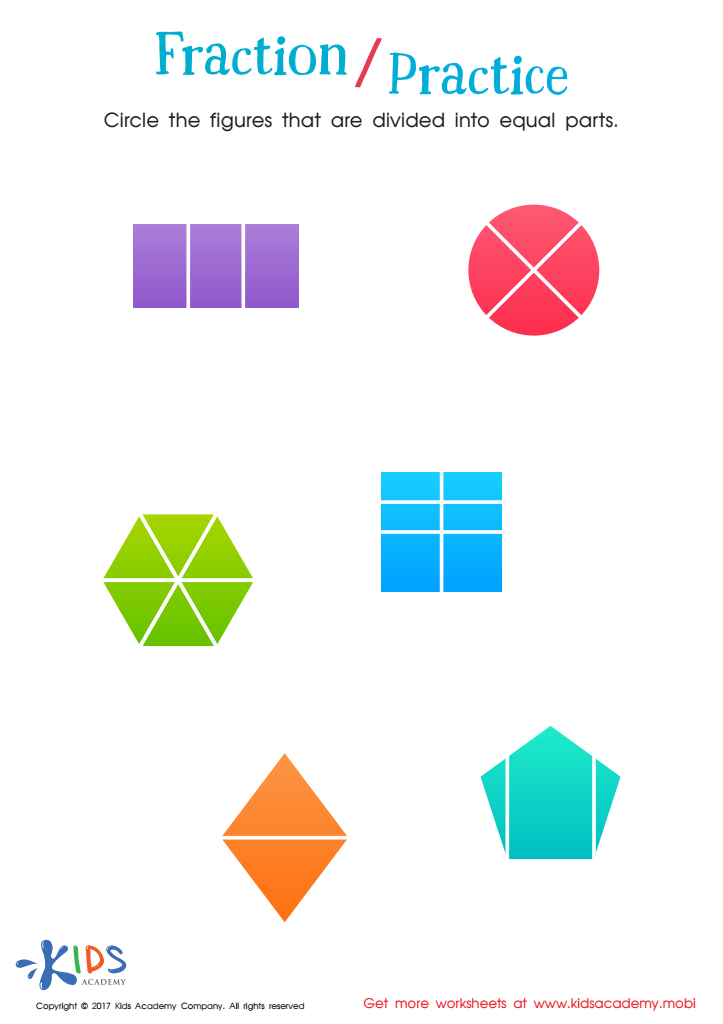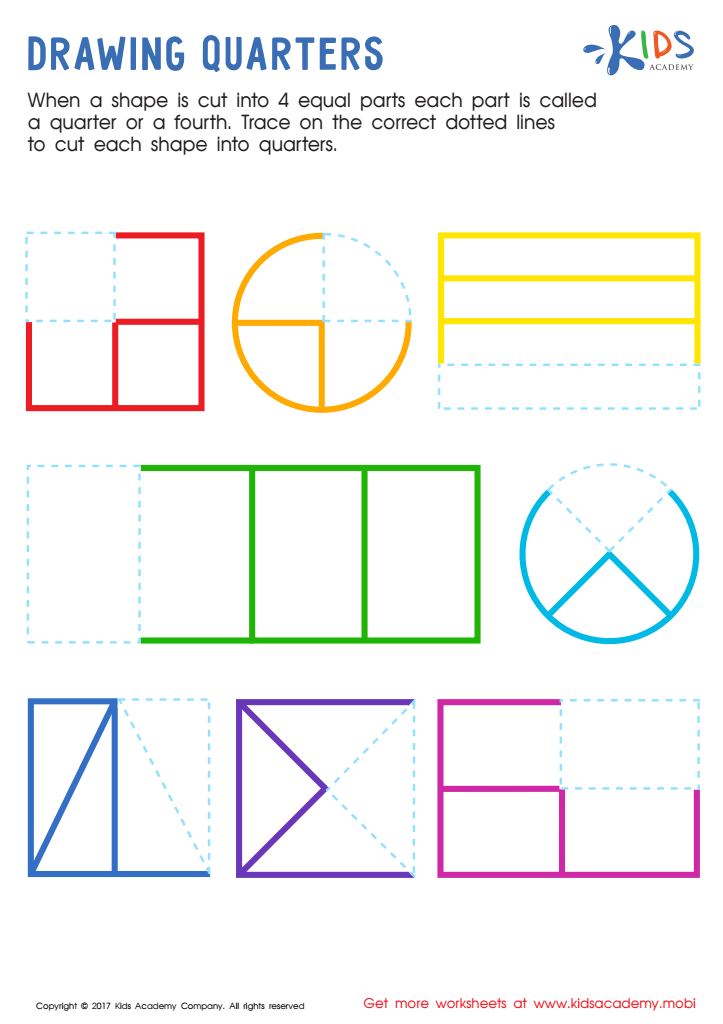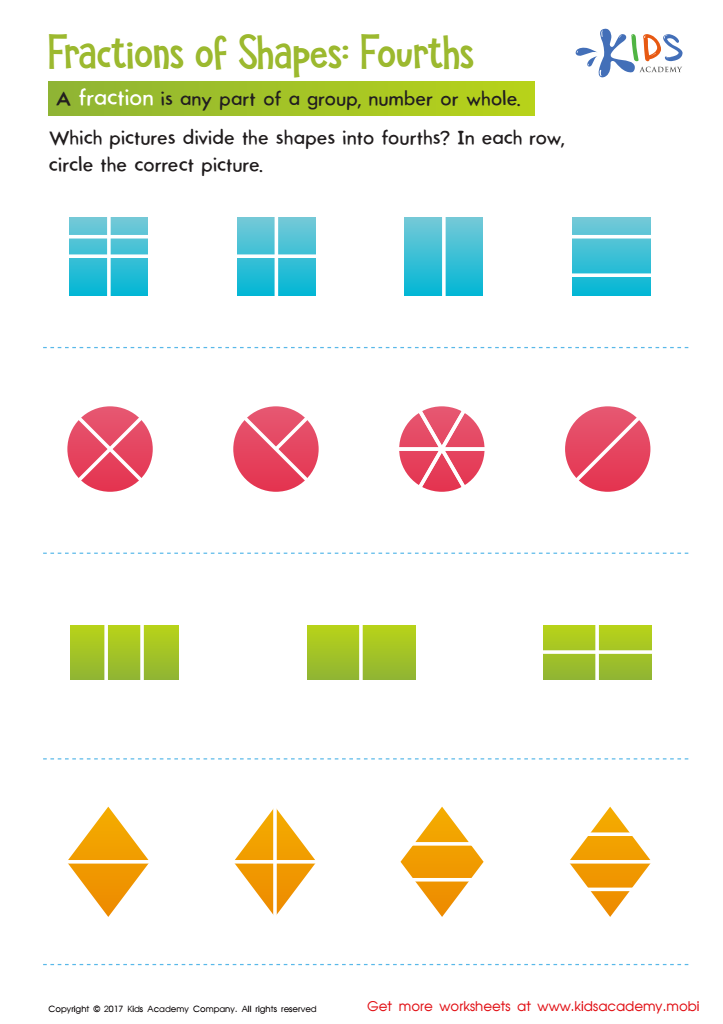Understanding fractions Extra Challenge Geometry Worksheets for Ages 3-6
3 filtered results
-
From - To
Unlock the joy of learning with our "Understanding Fractions Extra Challenge Geometry Worksheets for Ages 3-6"! Crafted to nurture young minds, these engaging worksheets combine basic geometry and introductory fraction concepts, tailored perfectly for early learners. Vibrantly designed, they foster important skills such as shape recognition, counting, and fine motor development. Kids will have fun as they grasp early math concepts, exploring parts and wholes through interactive activities. Ideal for home or classroom use, watch as your child gains confidence in their math abilities. Start your child’s educational journey with these exciting and educational worksheets today!


Fractions: Shapes Worksheet


Drawing Quarters Worksheet


Fractions of Shapes Worksheet
Understanding fractions and engaging in extra challenge geometry exercises at an early age, such as for children ages 3-6, is crucial for several reasons. Firstly, early exposure to mathematical concepts builds a strong foundation that sets the stage for future learning. Although young children may not grasp fractions and geometry in the traditional sense, activities involving these concepts can enhance cognitive development, spatial reasoning, and problem-solving skills.
Introducing fractions through everyday activities like sharing food or playing with blocks helps children understand the idea of parts making up a whole, which is fundamental in everyday decision-making and advanced math. It also fosters early numeracy skills, such as counting and comparing, which are vital for their academic career.
Similarly, extra challenges in geometry help hone a child's spatial awareness and visualization abilities. Activities like fitting shapes together in puzzles or identifying patterns promote fine motor skills and hand-eye coordination, which are essential for writing and other daily tasks.
Moreover, engaging in these activities nurtures a curious and positive attitude towards math. When parents and teachers show enthusiasm and provide support during these early learning experiences, children are more likely to develop confidence and interest in math, which can diminish math anxiety and encourage lifelong mathematical curiosity.
 Assign to My Students
Assign to My Students















